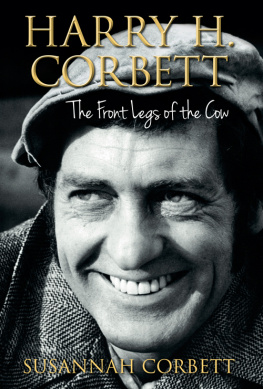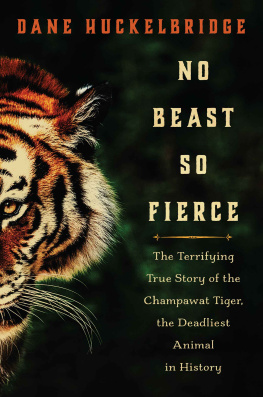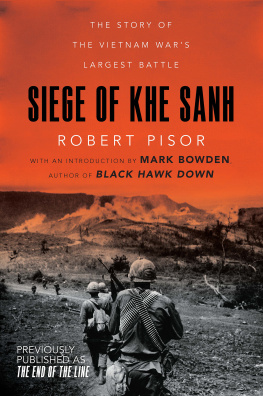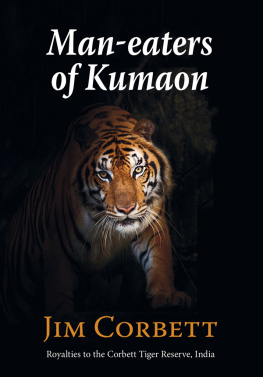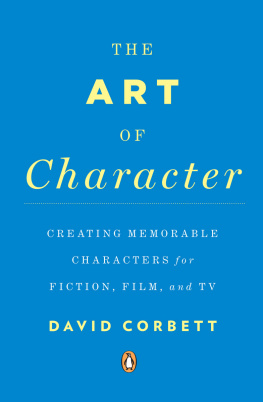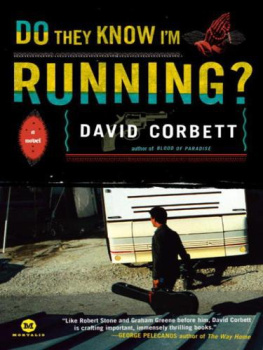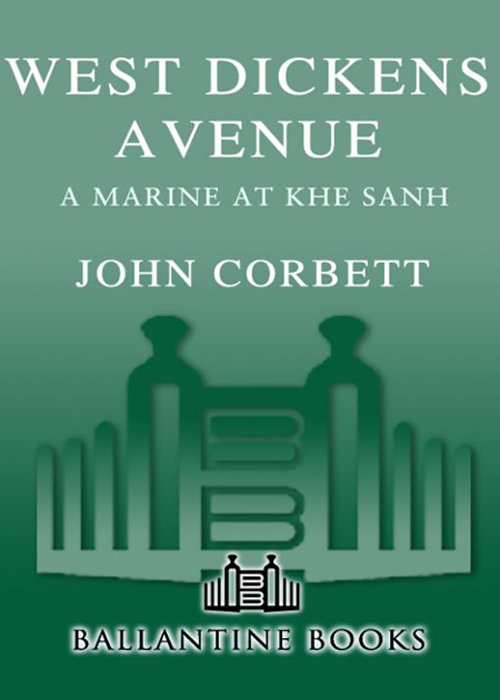
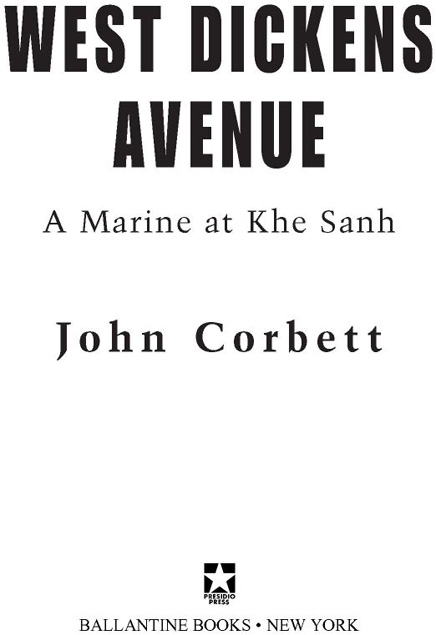
Table of Contents
During the siege at Khe Sanh in South Vietnam, while sifting through a pile of junk in search of material to fortify his foxhole, PFC John Corbett found a bright yellow street sign. Clearly American in origin, somehow it had made its way across thousands of miles of ocean to this distant, godforsaken battlefield. As the young Marine erected the sign above his post, he said to himself, Now I have a home with an address: West Dickens Avenue, Khe Sanh....I wonder about the city this sign comes from. I wish, no matter where the hell it is, I was there instead of here.
Books published by The Random House Publishing Group are available at quantity discounts on bulk purchases for premium, educational, fund-raising, and special sales use. For details, please call 1-800-733-3000.
To my late mother, Dorothy Marie (Falt) Corbett,who fought all of my wars with me.
Preface
Arlington National Cemetery,Friday, July 2, 1993, 8:30 A.M.
Today is my birthday. Those of us who came for this twenty-fifth anniversary reunion commemorating our battle rode here on several charter buses from the Holiday Inn in Georgetown, where we are staying. We got off the buses at the cemetery visitors center and walked the quiet pathways to Roosevelt Drive.
I had never been to Arlington National Cemetery before. There are graves and memorials to people I have never heard about. I never knew there was a Sir John Dill, a British field marshal in World War II. Sir Johns grave is here. There are other famous people whom I have heard of but didnt realize were buried here: the late world heavyweight champion boxer Joe Louis, for instance.
We are in Cemetery Section 2, and I am with a group of Vietnam veterans. Some of them have brought their wives and children to the cemetery. We have come to Arlington to dedicate a monument to all Vietnam veterans who served at Khe Sanh. The memorial is two faceted: There is the silent bronze plaque on a red granite stone that came from a rock quarry in Wisconsin. At the new memorial is a young tree planted just behind the stone; we want it to grow here. Its a ginkgo tree, chosen because of its tenacity for holding onto life despite adverse environmental conditions. It is one of Earths oldest living species.
The children present (sons, daughters, nieces, and nephews) will lay a multiflowered wreath at our monument at the end of the ceremony. The commandant of the United States Marine Corps, Gen. Carl E. Mundy, Jr., will give the dedication speech. The ceremony is beginning.
We gather around our memorial; it has just begun to rain. I liked rain in Vietnam; the fighting seemed to stop until the rain ended, or so it seemed. I dont mind this rain at all; it gives me a feeling of peace, albeit temporary.
I have mixed feelings this morning. I am glad to be here, because today is one more birthday I never thought I would see. I am also not happy to be here, but inwardly I know I must. I am here to honor our Khe Sanh brother soldiers who didnt leave Khe Sanh alive.
Our new bronze plaque on the Wisconsin granite stone reads:
REMEMBER
ALL WHO SERVED AND SACRIFICED
KHE SANH
1967 HILL FIGHTS 1968 SIEGE
WE ARE ETERNALLY BONDED
SEMPER FIDELIS
KHE SANH VETERANS
2 JULY 1993
General Mundy is beginning his speech. He is smart; hes wearing a raincoat. There are several umbrellas in the crowd. It is really starting to rain now. I am behind our new memorial, on a grassy knoll, seeking shelter from the rain under an old tree. I wear glasses, and to see the ceremony I am constantly wiping raindrops from my lenses. I strain to hear the generals words, but the noise of the rainfall is drowning out portions of his speech. I can hear bits and pieces: I am honored to be here. I am a Khe Sanh veteran. Each of us here has our own powerful set of memories about Khe Sanh: some good, some not so good, some bad....
BAM! A flash of lightning and a clap of thunder. I dive for cover to the ground. Of all places, why does it have to be here? Of all times, why does it have to be now?
I hear more fragments of the generals speech: The Marines today talk about you with the awe they once reserved for the Marines who went in with the first two assault waves at Tarawa or... Khe Sanh has become a part of the Corps rich legacy of pride, of courage, of history...
I am not embarrassed about diving for cover. I see some faint smiles in the crowd. Undoubtedly there would be laughter if we werent here for this solemn remembrance. Khe Sanh veterans understand. We are as the stone states: eternally bonded.
The lightning strike and loud thunder have my adrenaline flowing. I am nervous and flinching; the noise and flash have put me on edge. They have put other Khe Sanh veterans in this gathering on edge, too, which also affects their wives and children. Thunder and lightning provoke flashbacks to the times we had to dive to the ground, or into it, for shelter, trying to stay out of harms way, hoping to survive.
My thoughts are back there once again, as they have been many, many times before, triggered by loud noises such as this thunder. I will take you back there with me, to the place named on our stone, if you want me to, but I wouldnt blame you if you chose not to come.
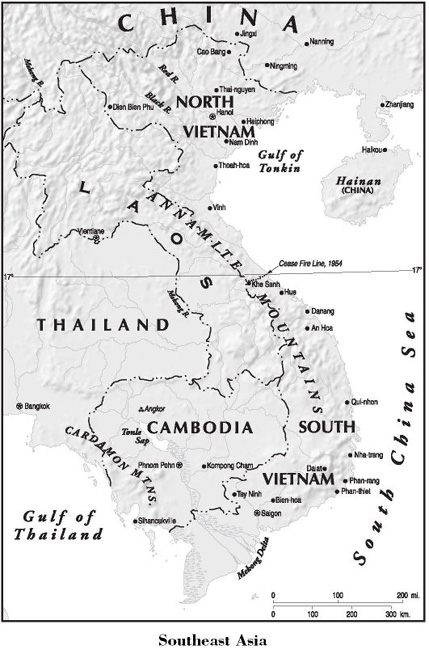
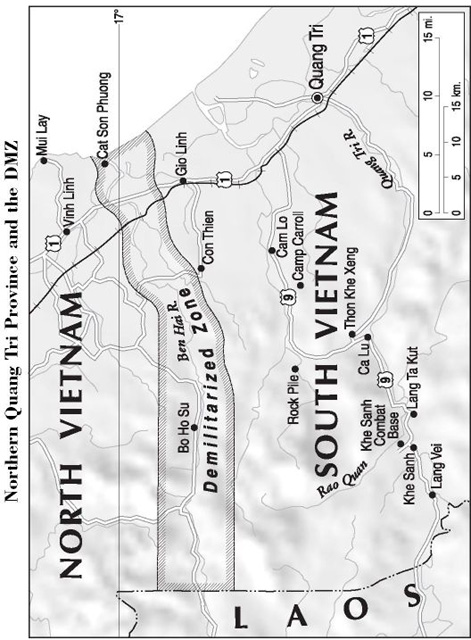
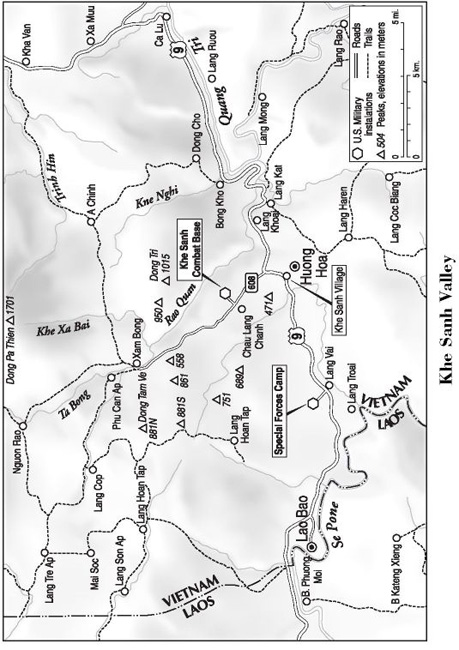
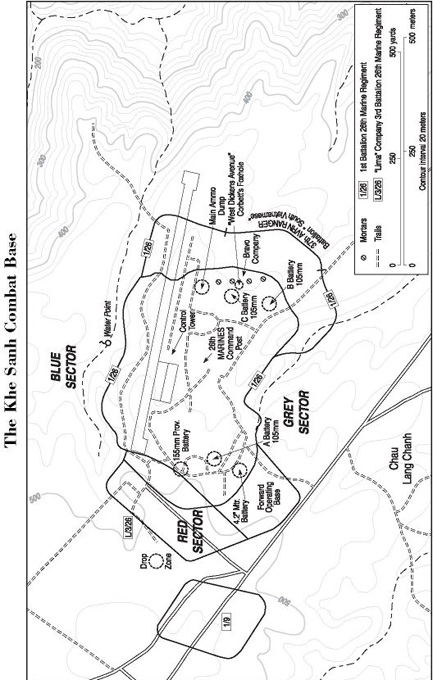
1: Enlistment
Nyack, New York, July 1967
I left school during my first year of college. I romanticized about joining the French foreign legion, knowing I didnt even need to speak French. All I had to do was sign a five-year contract and they would teach me French. My youthful dreams of riding a camel across desert sand dunes, wearing a white kepi hat on my head, had faded. Greetings, said Uncle Sams draft notice that arrived in the mail. The United States wanted me for military service and undoubtedly would send me to Vietnam. I ripped up the draft notice in front of my mother and father at the dinner table. My act didnt go over well with my law-abiding, conservative, Irish-Catholic parents.
I decided to go to Canada and be a draft dodger. Canada is much closer than Corsica, where the foreign legion was. I wanted some adventure, but not the adventure my government wanted to provide, such as sending me to Vietnam.
I hadnt thought much about Americas involvement in Vietnam. World affairs were just that, a world away, in my mind. I was rebellious and determined not to let Uncle Sam tell me what to do. I could dream about traversing sand dunes with the French foreign legion but not about being a drafted government-issue GI Joe.
I prepared to leave for Canada; I was going to Montreal. Even my high school French books were packed.
ODonoghues Tavern, 66 Main Street,Nyack, New York
Next page

